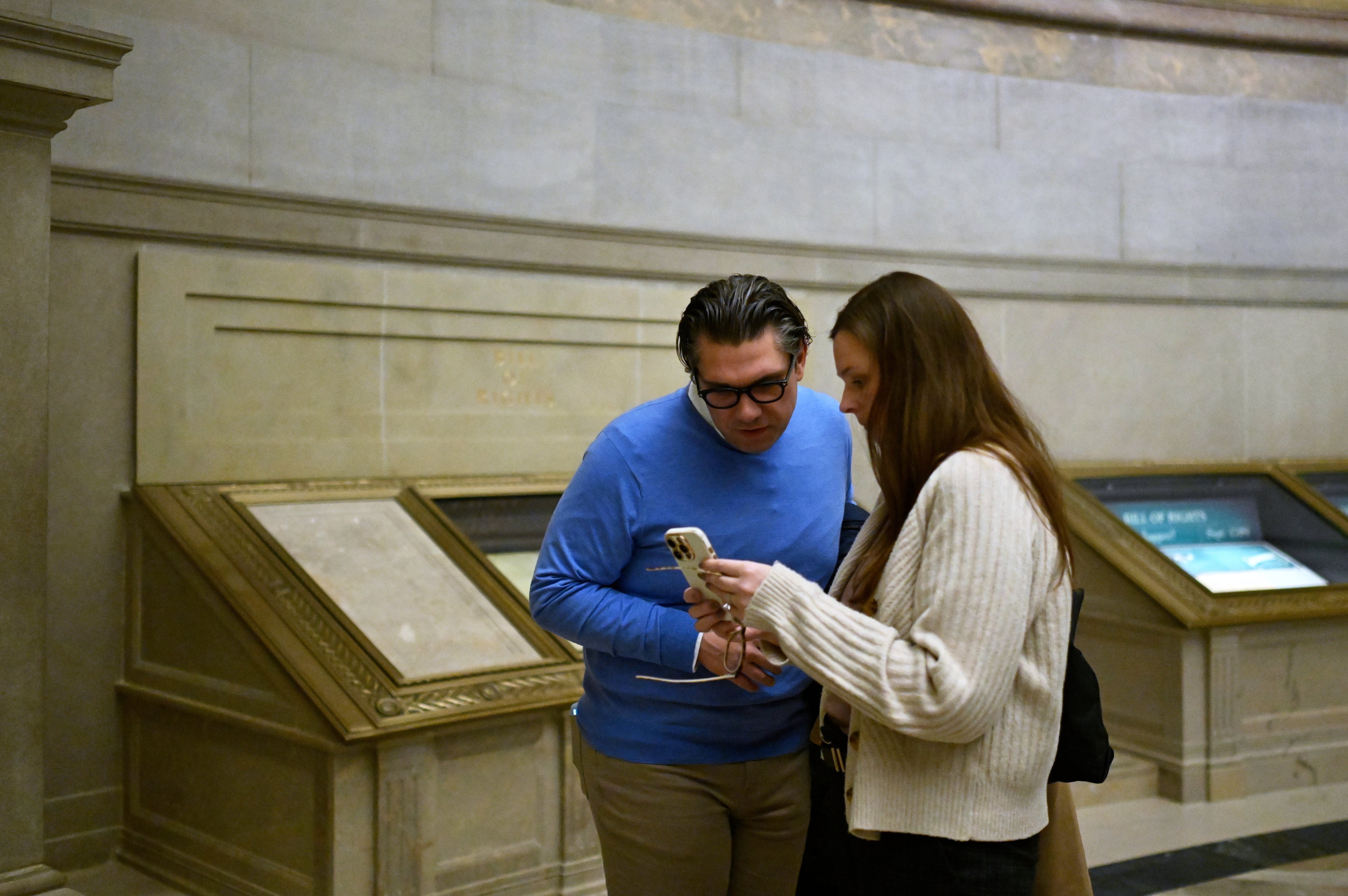Never count out U.S. troops. From D-Day to now, they’ve shown their mettle.
Every June 6 for many years, no matter where I might be, I would make a respectful phone call to my wife’s Uncle Chuck. I simply wanted to let him know that I was thinking about him on the anniversary of the most important day of the 20th century — D-Day, June 6, 1944.
As a young man on that fateful day, Uncle Chuck parachuted into Normandy, France with the 82nd Airborne Division and fought desperately to protect American troops that had just landed on the beaches.
Had the D-Day invasion failed, World War II would have been indefinitely prolonged, further magnifying the forthcoming death and destruction. But on this decisive day the Allies successfully secured the beachhead on the French coast that enabled the final climactic drive to victory against Nazi Germany.
On May 8, we celebrated the 80th Anniversary of VE Day commemorating the unconditional surrender of Germany and the essential victory in Europe.
For perhaps 40 years after the end of World War II, many historians judged the well-trained German soldier to be the best combat soldier of the war. However, in recent decades, some historians led by the late Stephen Ambrose, the founder of the National WWII Museum in New Orleans (“Citizen Soldiers,” Stephen Ambrose, Copyright 1997), and history aficionados such as myself, have challenged this thinking and argue that the American soldier was the best combat soldier of the war.
Skirmishes against Germans show American GIs’ grit

German soldiers and American soldiers clashed numerous times from 1942 to 1945, but the conclusive evidence that supports our reasoning comes from two monumental engagements between German and American forces. Both times, Americans managed to win. At Omaha Beach during the D-Day invasion and at the December 1944 encirclement and siege of the Belgian town of Bastogne during the Battle of the Bulge, both the German and American soldiers knew defeat was not an option.
For the assault on Omaha Beach, the Americans were on the offensive and the Germans were on the defensive. The Germans were defending the high bluffs overlooking the beach and had both numerical and firepower advantages. By the end of the day the American 1st and 29th Infantry Divisions controlled Omaha Beach and prevented the Normandy beachhead from disastrously being split in two.
At Bastogne, the situation was reversed. The Germans were on the offensive and the Americans were on the defensive. On December 16, 1944, the Germans launched a surprise counterattack in the Ardennes region of Belgium in a huge gamble to turn the tide of the war. The massive German attack punched a large bulge in the front lines of the American forces.
The 101st Airborne Division was rushed to Bastogne and told “to hold at all costs.” Surrounded by several German Panzer divisions and being attacked from all sides, the 101st dug in for a heroic stand. The Germans demanded “surrender or be annihilated,” but the defiant commander of the 101st responded with the immortal reply, “NUTS.”
In what was surely the best Christmas present any American military unit ever received — even if it was a day late — the 101st held Bastogne until December 26 when Gen. George S. Patton’s advancing army smashed through German lines and broke the siege. Thus, the Battle of the Bulge became a pivotal American victory that would hasten the outcome of the war. (“Patton: Ordeal and Triumph,” Ladislas Farago, Copyright 1964).
Low-ranking soldiers showed they could assume command

When the outcome of the war was at stake, and you absolutely had to win, it was the American combat soldiers who withstood the duress, absorbed the casualties, and did everything necessary to achieve victory. The American soldier has no peer when it comes to the ability to have lower-ranking soldiers spontaneously rise into leadership roles in high-casualty, arduous situations, and to adapt, improvise, and deal with adversity on the battlefield.

Our beloved Uncle Chuck was a good, solid, patriotic man who personified the fact that an ordinary American, when trained and motivated as a soldier, would be capable of doing extraordinary things.
Good fortune smiled upon Uncle Chuck as he managed to survive the Normandy campaign and subsequent operation Market Garden (the parachute drop along the Rhine River) without injury.
His luck ran out during the Battle of the Bulge when he was seriously wounded. (He was listed as Missing In Action for several months until the War Department sent a telegram to his worried parents that he was alive and recovering in a military hospital.)
Eric Hogan of Tybee Island, Georgia, is the son of a World War II veteran, a graduate of the Georgia Institute of Technology and Mercer University Law School, and a retired real estate developer.

